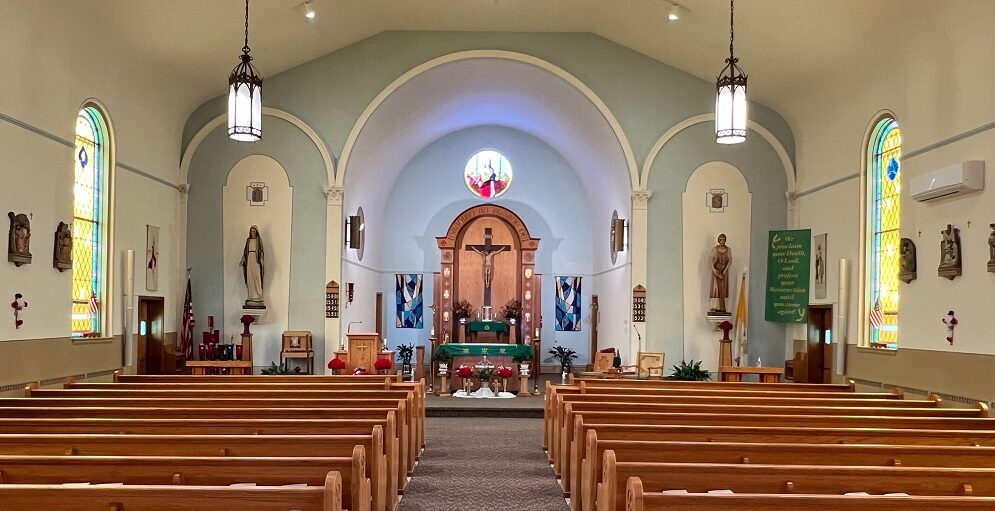Posted on February 13, 2025
Catechism Meditation:
Christ instituted the sacraments of the new law. There are seven: Baptism, Confirmation (or Chrismation), the Eucharist, Penance, the Anointing of the Sick, Holy Orders and Matrimony. The seven sacraments touch all the stages and all the important moments of Christian life: they give birth and increase, healing and mission to the Christian’s life of faith. There is thus a certain resemblance between the stages of natural life and the stages of the spiritual life. ―No. 1210
REFLECTION. In his book, These Are The Sacraments, Fulton Sheen says… The physical or the natural life requires seven conditions, five of which refer to the person as an individual, and the other two as a member of society. The five conditions of leading an individual life are: (1) In order to live, one must obviously be born; (2) He must nourish himself, for he who does not eat shall not live; (3) He must grow to maturity, throwing away the things of the child, and assume the responsibilities of adult life; (4) In case he is wounded, he must have his wounds bound and healed; and (5) In case he has disease (for a disease is very different from a wound), the traces of the disease must be driven out. As a member of society two further conditions are required: (1) He must live under government and justice in human relationships, and (2) He is called to propagate the human species.
Over and above this human life, there is the divine Christ-life. The seven conditions of leading a personal Christ-life are the following: (1) We must be spiritually born to it, and that is the Sacrament of Baptism; (2) We must nourish the divine life in the soul, which is the Eucharist; (3) We must grow to spiritual maturity and assume full responsibilities as members of the spiritual army of the Church, which is Confirmation; (4) We must heal the wounds of sin, which is Penance; (5) We must drive out the traces of the diseases of sin, which is the Anointing of the Sick; (6) We must live under the spiritual government of the Church, which is Holy Orders; (7) We must prolong and propagate the Kingdom of God on earth, which is Matrimony.
Every sacrament has an outward or visible sign; for example, in Baptism it is water, in the Eucharist it is bread and wine. But the sacrament also has a form or formula, or words of spiritual significance given to the matter when it is conferred. Three things then are absolutely required for a sacrament: (1) Its institution by Christ; (2) An outward sign; and (3) The power of conferring the grace or divine life purchased for us by the Passion, Death, and Resurrection of Christ.
PRAYER. Jesus, help us to recognize Your real presence in the sacraments.
Timeless Wisdom Quote:
“No one can ever understand the sacraments unless he has what might be called a “divine sense of humor.” A person is said to have a sense of humor if he can “see through” things; one lacks a sense of humor if he cannot “see through” things. No one has ever laughed at a pun who did not see in the one word a twofold meaning. To materialists this world is opaque like a curtain; nothing can be seen through it. A mountain is just a mountain, a sunset just a sunset; but to poets, artists, and saints, the world is transparent like a window pane–it tells of something beyond; for example, a mountain tells of the Power of God, the sunset of His Beauty, and the snowflake of His Purity.” ― Venerable Fulton J. Sheen
Featured Video:
What Are the 7 Catholic Sacraments? | Chris Stefanick (7:50)
